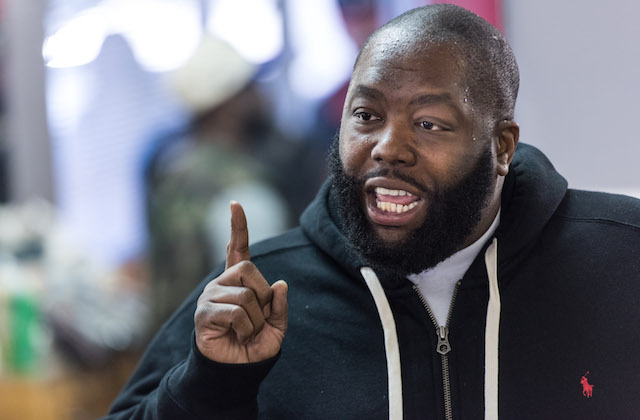Run the Jewels MC and social justice activist Michael "Killer Mike" Render examines how the War on Drugs impacts the current legal marijuana boom in a new Rolling Stone essay.
Co-written by scholar Erik Nielson, the essay argues for state-level reforms to allow people with nonviolent drug offenses to open marijuana dispensaries:
As more and more people race to cash in, it’s becoming apparent that African Americans in particular are being left behind. According a BuzzFeed report last March, just one percent of America’s 3,200 to 3,600 marijuana dispensaries are Black-owned. Although there are [a] number of barriers to entry, one of the most concerning is that people convicted of nonviolent drug crimes are often disqualified from participation in the marijuana industry altogether—something that states like California have begun to address with their marijuana reform initiatives.
More states need to follow suit. Given the history of marijuana prohibition in the United States—a history rooted in the deliberate demonization and criminalization of Black and Hispanic men—it’s clear that barring access to people convicted of nonviolent drug crimes ends up reproducing many of the same racial inequalities that have characterized marijuana laws for decades.
The writers describe how laws in places like Colorado and Washington, where recreational marijuana is legal at the state level, prevent people with felony-level drug offenses from securing licenses to open dispensaries. These regulations disproportionately impact Black residents. Police arrest them at twice the rate of other groups for possession, which is still a federal crime.
The essay calls California’s recently passed Proposition 64 "the right approach." The ballot measure permits recreational use and distribution under an ounce for adults over 21, and ceases prosecution of people 18 and older for marijuana. It also expunges many marijuana-related offenders’ records and allows most nonviolent drug offenders to operate dispensaries.
Let us know what you think about the new essay in the comments.
